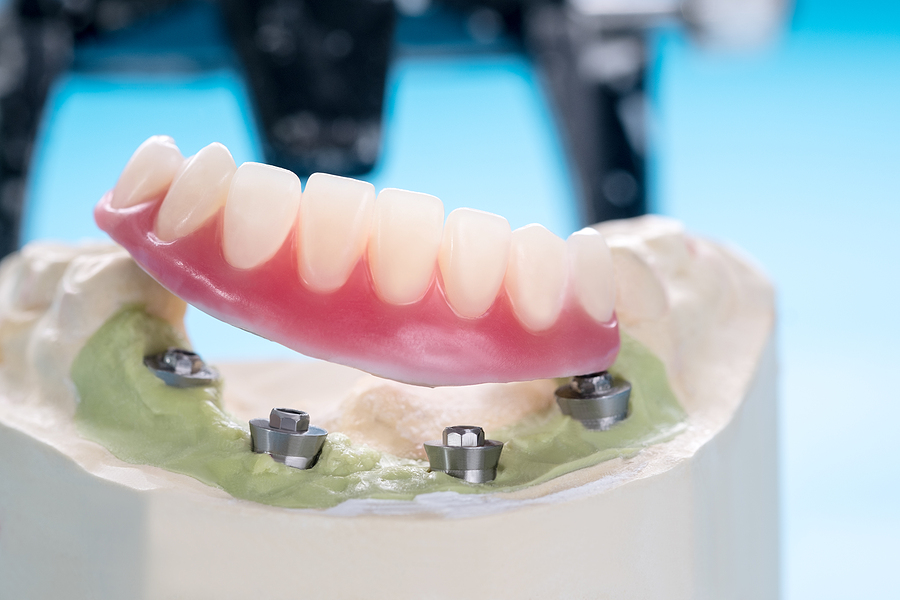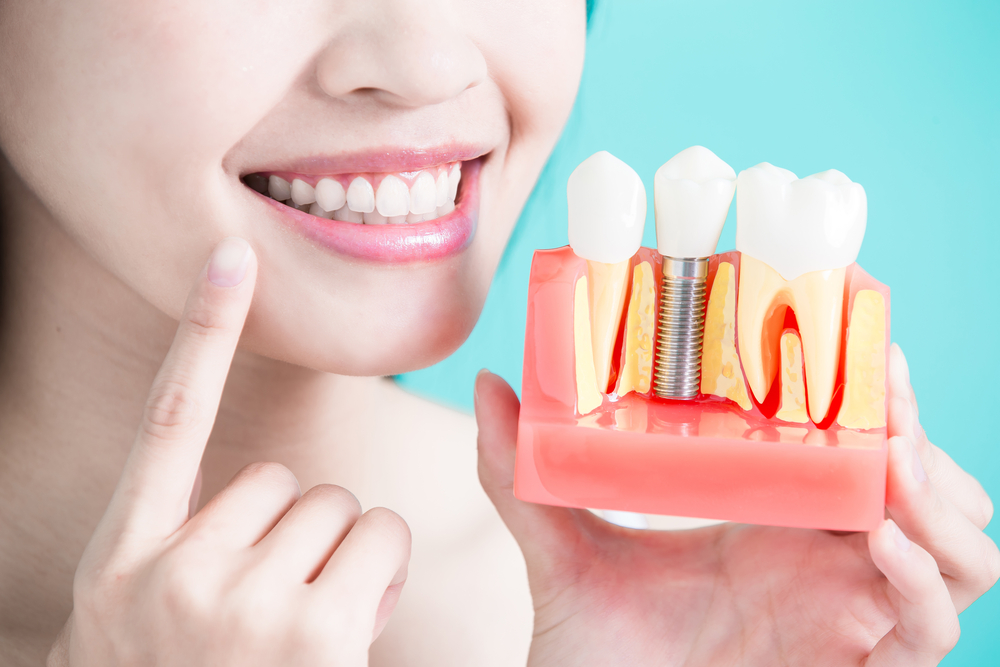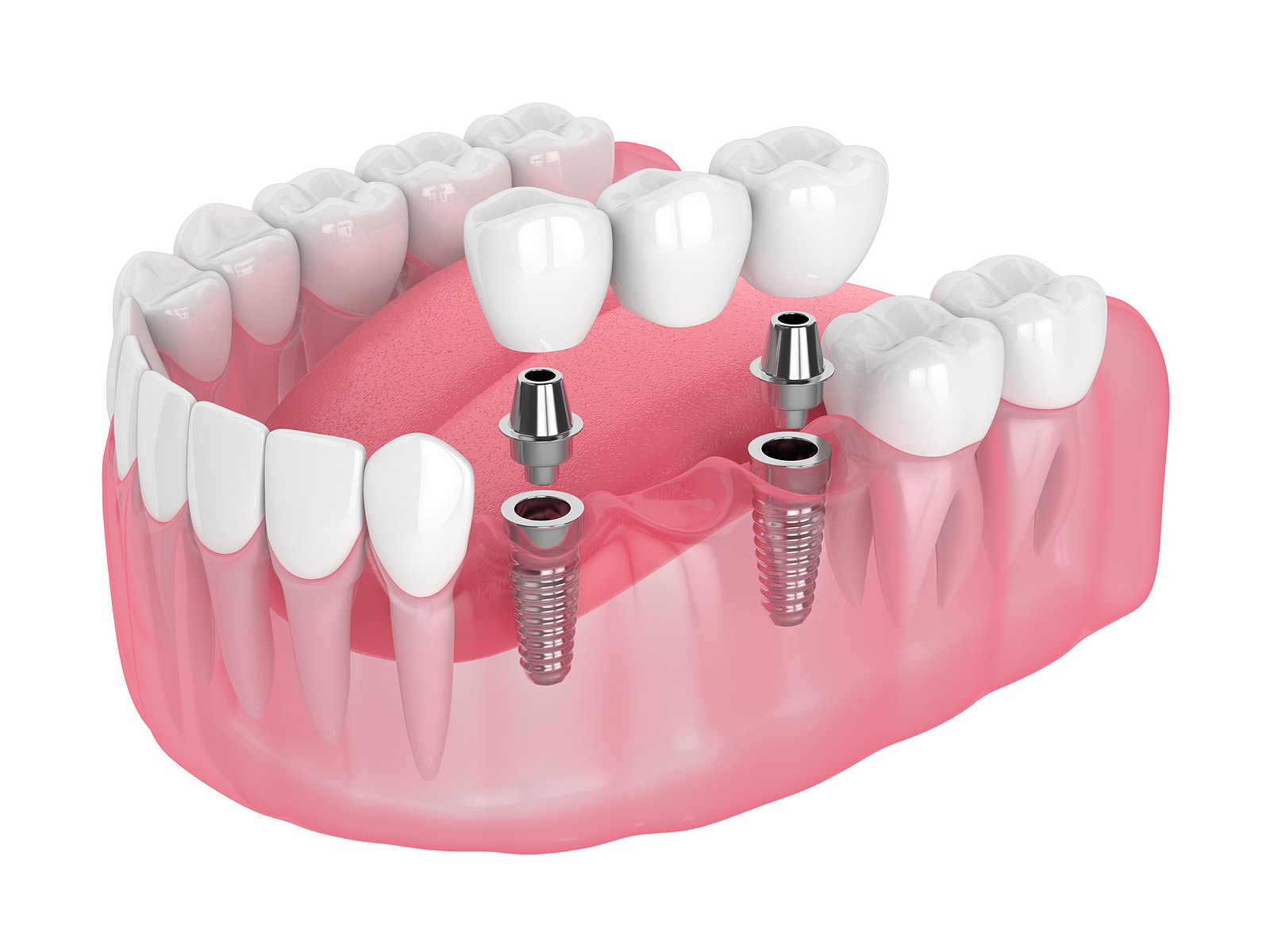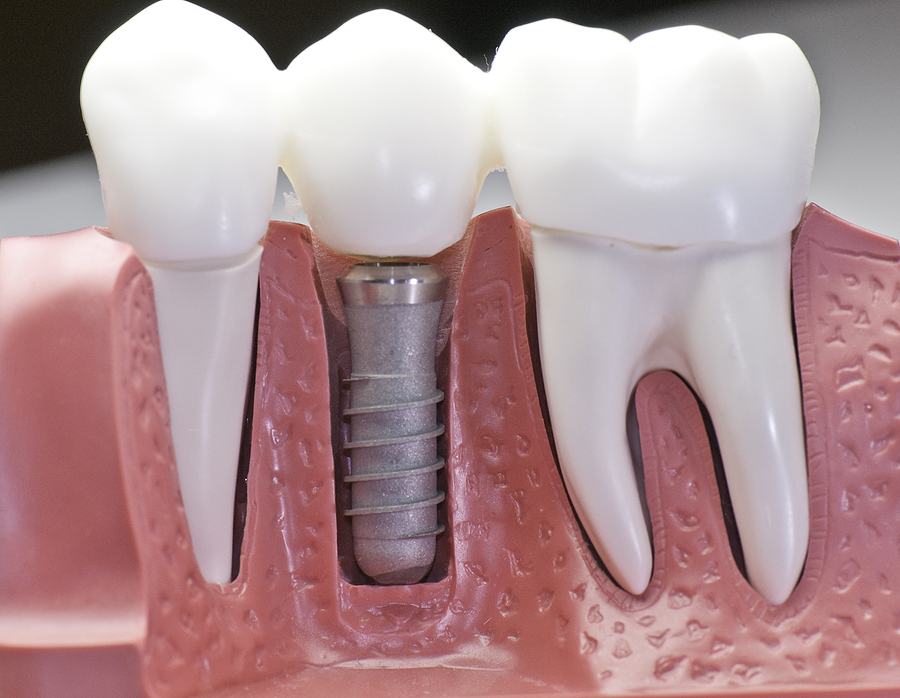Dental Implants in Altamonte Springs, FL

Dental implants are a permanent, non-removable tooth replacement option. These small titanium posts are surgically placed into your jawbone, where they act as artificial tooth roots. They support a tooth restoration, such as a dental crown, bridge, or denture, that looks and functions like natural teeth.
How Do Dental Implants Work?
Dental implants are surgically placed in your jawbone, below the gum line. Since they’re made of titanium, they naturally fuse with the bone as titanium is biocompatible. Over time, they provide a reliable, attractive replacement for lost teeth. Dental implants are also very versatile. They can be used to support a dental crown and replace a single missing tooth, or they can be used to support a bridge or denture and replace multiple missing teeth.


Types of Dental Implants
The two main types of dental implants are:
- Endosteal implants: This type of implant is surgically implanted in the jawbone. The implant forms a strong and permanent bond with the bone. This implant is best suited for patients who cannot wear dentures.
- Subperiosteal implants: This type of implant is placed on top of the jawbone and under the gum tissue. It is best suited for patients who do not want to undergo a more invasive procedure.
What Are the Benefits of Dental Implants?
While traditional dental bridges or dentures replace missing teeth, they cannot prevent bone loss in the jaw. Without teeth, the jawbone can become weaker. When dental implants are placed into the jaw, the bone remains stimulated and can stay strong.
The implant stud has screw-like grooves on its surface, which hold the jawbone intact and prevent its deterioration. This feature also allows the implant to gain a good grip and prevents it from getting displaced. Implants are often considered the closest alternative to natural teeth as they replace both the tooth root and crown.
Dental implants fully restore your ability to eat your favorite foods and speak and smile confidently. They are designed to last a lifetime. There are no other tooth replacement options that can offer the same benefits.


Is Dental Implant Surgery Dangerous?
Dental implants are a safe and predictable procedure when performed by an experienced dental professional. The surgical procedure is performed while the patient is under sedation or anesthesia. Our doctors are specially trained to perform these procedures using top-of-the-line equipment and techniques. Your comfort and safety during implant placement surgery are our top priorities.
To find out more about the dental services we offer at Distinctive Dental on Maitland, call (407) 830-9800 or schedule your consultation online. You can also visit Dentist Altamonte Springs, FL at 609 Maitland Ave STE 1, Altamonte Springs, FL 32701.
Office Hours
MON - TUE7:00 am - 3:00 pm
WED7:00 am - 5:00 pm
THU7:00 am - 3:00 pm
FRI8:00 am - 12:00 pm
SAT - SUNClosed





